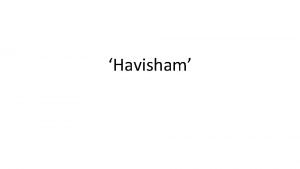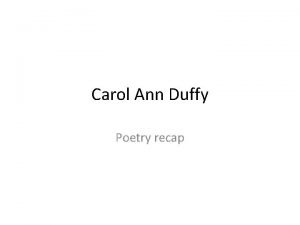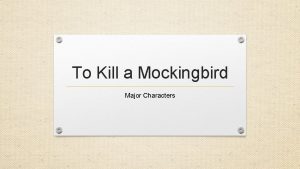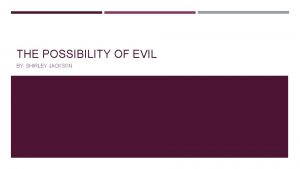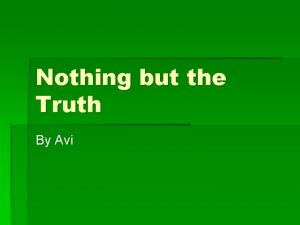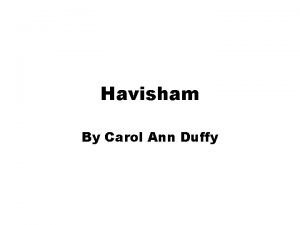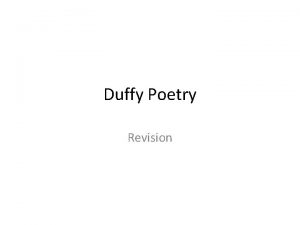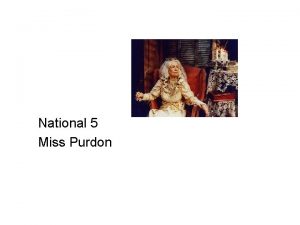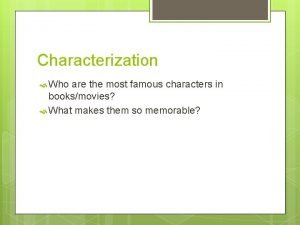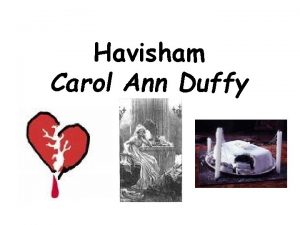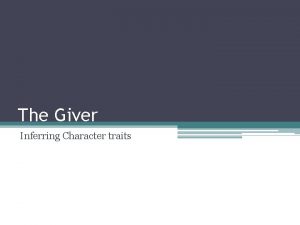Havisham Havisham Miss Havisham is a character from









- Slides: 9

Havisham

Havisham • Miss Havisham is a character from Charles Dickens’ novel ‘Great Expectations. • Miss Havisham has sick fancies. She is a significant character in the Charles Dickens novel, Great Expectations (1861). • She is a wealthy spinster, who lives in her ruined mansion watching little children, like Pip and Estella, play cards. . . because of her sick fancies. • She lives with her adopted daughter, Estella, while she herself is described as looking like "the witch of the place".

Havisham • Miss Havisham is a contradictory character in literature and in the context of her time. • Unlike most unmarried women of the era, her wealth gives her tremendous power, which she uses to coax others to do her bidding and to advance her aims, yet she allows her disappointment at being stood up at the altar to ruin her life, thus giving the man who spurned her ultimate power over her. • She lays waste to her estate, symbolic of herself, and tries to spread her cynicism and malaise to everyone she touches. • She is manic and often seems insane, flitting around her house in a faded wedding dress, keeping a decaying feast on her table, and surrounding herself with clocks stopped at twenty minutes to nine.

Havisham • Although she has often been portrayed in film versions as very elderly, Dickens's own notes indicate that she is only in her mid-fifties. • However, it is also indicated that her long life away from the sunlight has in itself aged her, and she is said to look like a cross between a waxwork and a skeleton, with moving eyes.

Havisham This poem is a monologue spoken by Miss Havisham, a character in Dickens' Great Expectations. Jilted by her scheming fiancé, she continues to wear her wedding dress and sit amid the remains of her wedding breakfast for the rest of her life, while she plots revenge on all men. She hates her spinster state - of which her unmarried family name constantly reminds her (which may explain the choice of title for the poem).

Havisham • She begins by telling the reader the cause of her troubles - her phrase “beloved sweetheart bastard” is a contradiction in terms (called an oxymoron). She tells us that she has prayed so hard (with eyes closed and hands pressed together) that her eyes have shrunk hard and her hands have sinews strong enough to strangle with - which fits her murderous wish for revenge. • (Readers who know Dickens' novel well might think at this point about Miss Havisham's ward, Estella - her natural mother, Molly, has strangled a rival, and has unusually strong hands. )

Havisham • “male corpse” - presumably that of her lover. • Miss Havisham is aware of her own stink - because she does not ever change her clothes nor wash. She stays in bed and screams in denial. At other times she looks and asks herself “who did this” to her? • She sometimes dreams almost tenderly or erotically of her lost lover, but when she wakes the hatred anger return. Thinking of how she “stabbed at the wedding cake” she now wants to work out her revenge on a

Havisham • Why does the poet omit Miss Havisham's title and refer to her by her surname only? • Why does the poet write “spinster” on its own? What does Miss Havisham think about this word and its relevance to her? • What is the effect of “Nooooo” and “b-b-breaks”? Why are these words written in this way? • What is the meaning of the image of “a red balloon bursting”? • How far does the poet want us to sympathize with Miss Havisham?

Havisham • Does the reader have to know about Great Expectations to understand the poem? • Does Miss Havisham have a fair view of men? What do you think of her view of being an unmarried woman? • Perhaps the most important part of the poem is the question “who did this/to me? ” How far does the poem show that Miss Havisham is responsible for her own misery, and how far does it support her feelings of selfpity and her desire for revenge?
